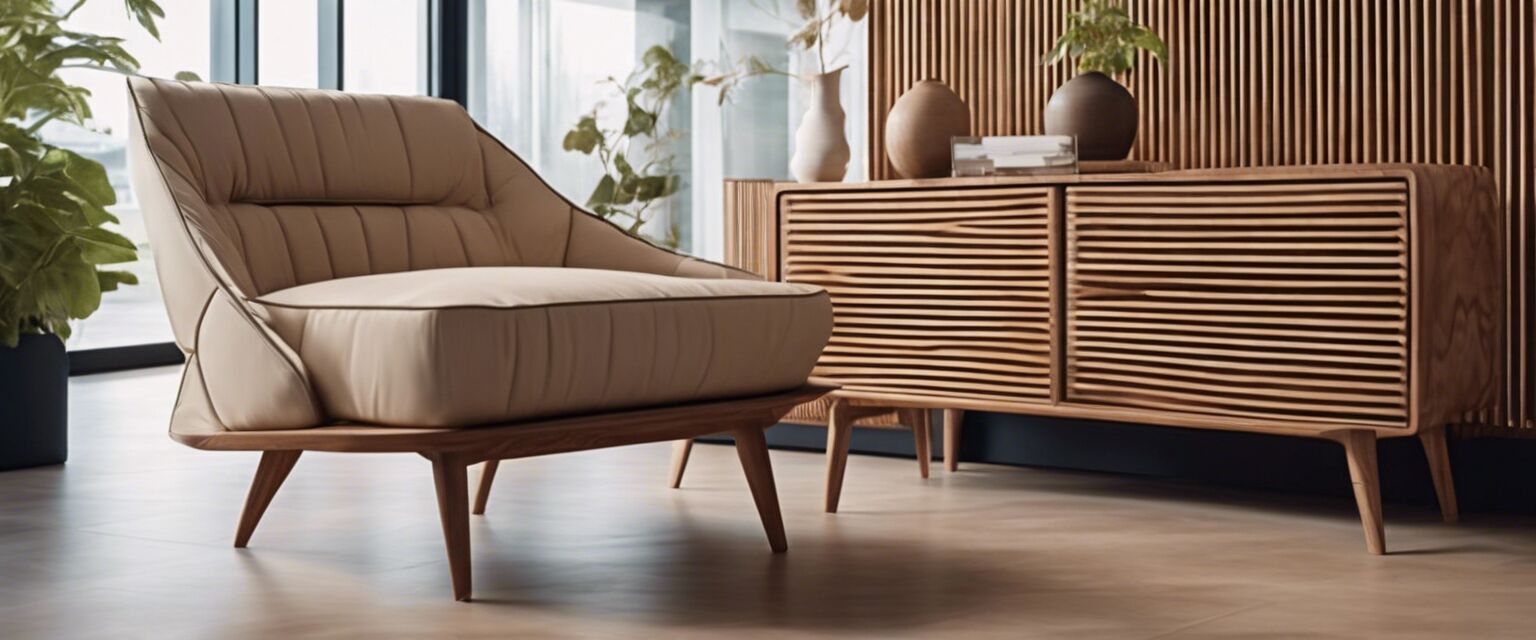
Innovations in Wooden Furniture Production
Key Takeaways
- Modern techniques improve sustainability in furniture production.
- Innovative designs enhance both functionality and aesthetics.
- Emerging technologies streamline the manufacturing process.
- Customization options are becoming more accessible to consumers.
- Natural wood continues to be a favored choice for contemporary decor.
In recent years, the wooden furniture production industry has witnessed significant innovations that not only improve craftsmanship and design but also enhance sustainability and efficiency. This article explores the latest trends shaping the future of wooden furniture. From modern manufacturing techniques to eco-friendly materials, let’s dive into how the industry is adapting to meet the needs of today's conscientious consumers.
1. Sustainable Materials
The shift towards sustainability is one of the most notable trends in the wooden furniture industry. Many manufacturers are now focusing on sourcing materials responsibly and using sustainable practices. This includes:
- Using reclaimed wood
- Incorporating recycled materials
- Utilizing fast-growing species of wood
- Adopting eco-friendly finishes and adhesives
Benefits of Sustainable Materials
| Benefit | Description |
|---|---|
| Reduced environmental impact | Choosing sustainable materials minimizes deforestation and ecological damage. |
| Increased durability | Many sustainable materials offer improved strength and longevity. |
| Consumer appeal | Eco-conscious customers prefer products that reflect their values. |
2. Advanced Manufacturing Techniques
Technological advancements have revolutionized the production process of wooden furniture. Innovations such as CNC machining, 3D printing, and laser cutting allow for:
- Increased precision
- Faster production times
- Reduced waste
- Complex designs that were previously unachievable
Impact on Efficiency
By employing these advanced techniques, manufacturers can produce high-quality pieces while minimizing their environmental footprint. This is reflected in the increasing popularity of custom projects, where consumers can enjoy bespoke designs tailored to their needs, which can be explored in more detail in our Custom Wooden Projects section.
3. Embracing Customization
The demand for personalized furniture is on the rise. Customers are looking for pieces that reflect their unique style and match their specific needs. Innovations enabling this include:
- Modular furniture designs
- Online configurators for custom orders
- Collaboration with designers for unique projects
The Role of Technology in Customization
Digital tools are making it easier than ever for consumers to engage in the design process.Customized options are readily accessible, allowing customers to choose materials, finishes, and sizes that suit their spaces perfectly. For further inquiry, visit our Wooden Furniture category.
4. Aesthetic Innovations
Contemporary wooden furniture is characterized by more than just sustainability; it embodies artistry and innovation in design. Some of the trends in aesthetics include:
- Mixed materials (e.g., combining wood with metal or glass)
- Streamlined and minimalist designs
- Natural finishes that highlight grain patterns
- Bold colors and textures to create unique statements
Popular Styles
| Style | Description |
|---|---|
| Rustic | Celebrates natural imperfections and rough textures, creating a homey appeal. |
| Modern Scandinavian | Features minimalism, functionality, and an emphasis on light woods. |
| Mid-Century Modern | Combines organic shapes and minimal ornamentation, often incorporating natural materials. |
5. Future Trends to Watch
As we look forward, several trends are poised to influence the production of wooden furniture significantly. Key trends to keep an eye on include:
- Smart furniture that integrates technology (such as charging ports and sensors)
- Greater emphasis on circular economy practices
- Increased transparency in sourcing materials
- New design approaches that blend indoor and outdoor spaces
Tips for Choosing Sustainable Wooden Furniture
- Look for furniture made from reclaimed or sustainably sourced wood.
- Check for eco-friendly certifications.
- Consider local manufacturers to reduce transportation emissions.
- Ask about the finishes used; natural oils and water-based finishes are preferable.
Pros
- Innovative furniture is often more durable.
- Requires less maintenance over time.
- Supports eco-friendly practices.
- Offers unique aesthetic options.
Cons
- Potentially higher initial cost.
- Varied availability of specific customized options.
- Innovative designs may not suit every traditional taste.
In conclusion, the innovations in wooden furniture production highlight a remarkable blend of sustainability, creativity, and technology. As trends evolve, both businesses and consumers must adapt and embrace these changes, ensuring that the beauty of natural wood continues to shine in our homes and workspaces. To stay updated with similar trends, be sure to explore our News and Trends section where we keep you informed about the ongoing evolution of wooden products.